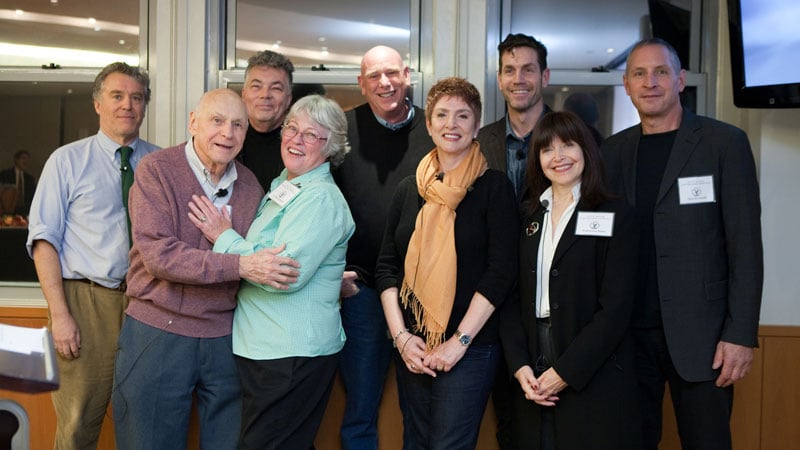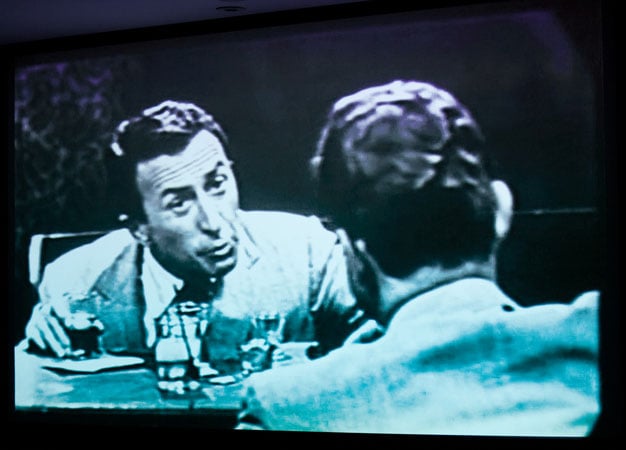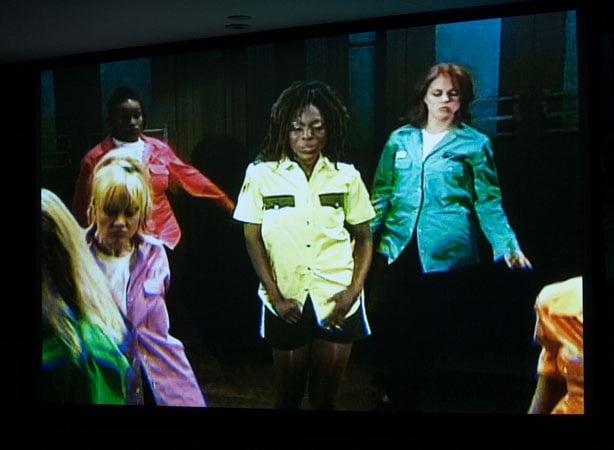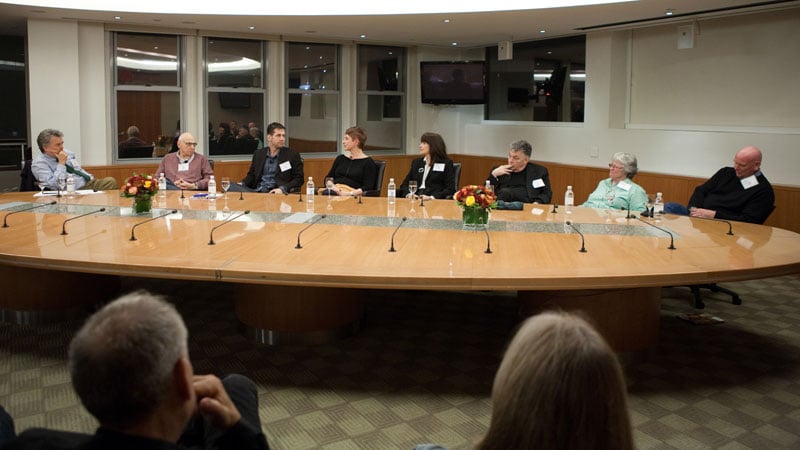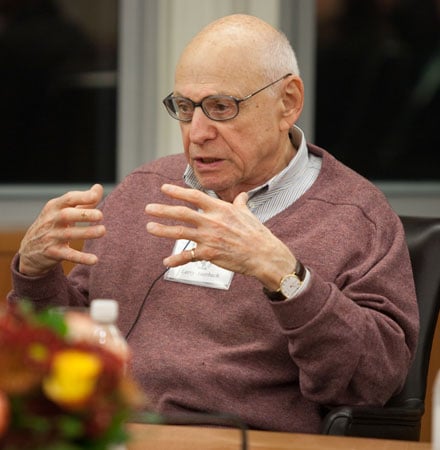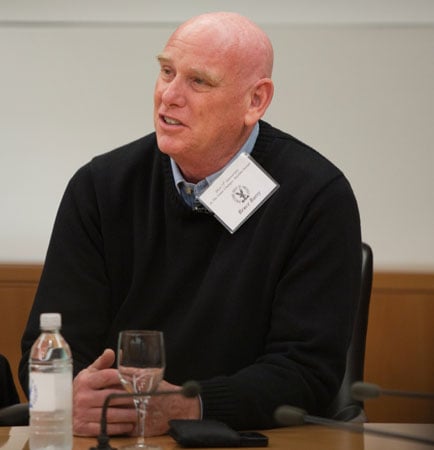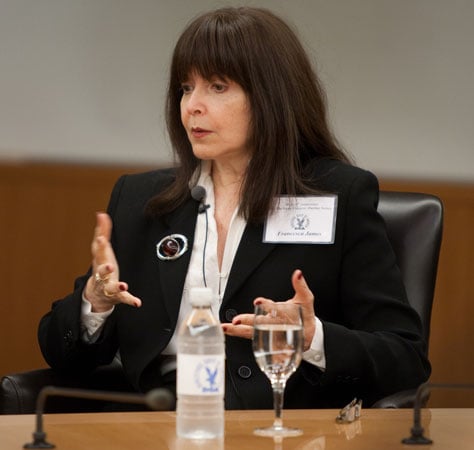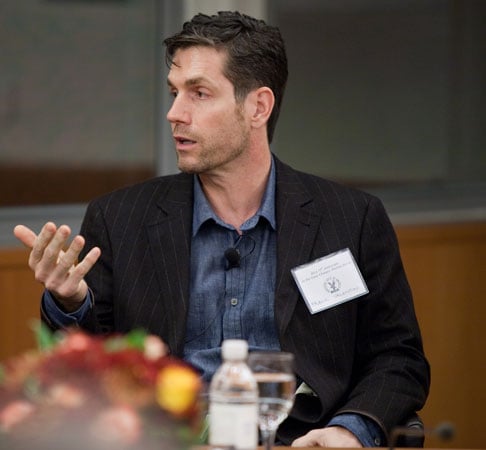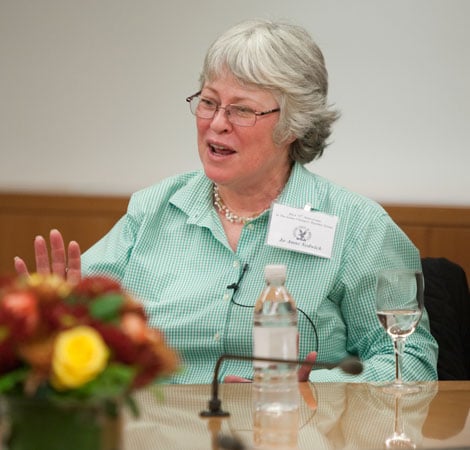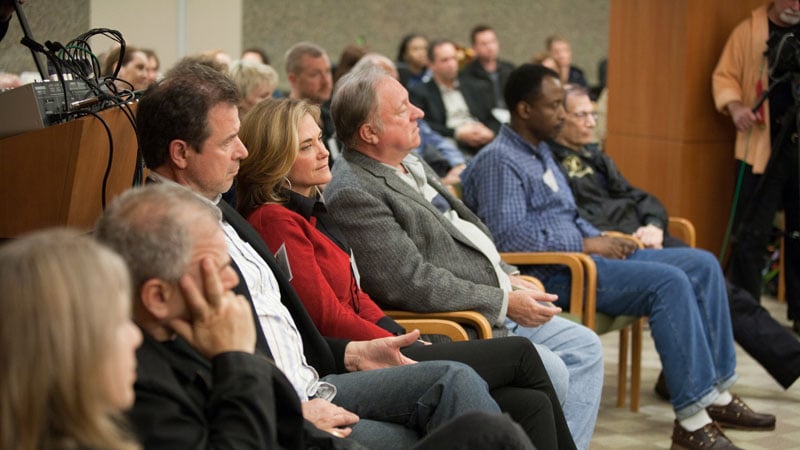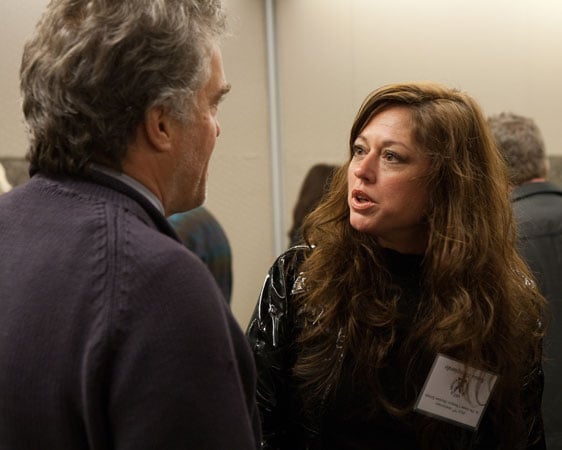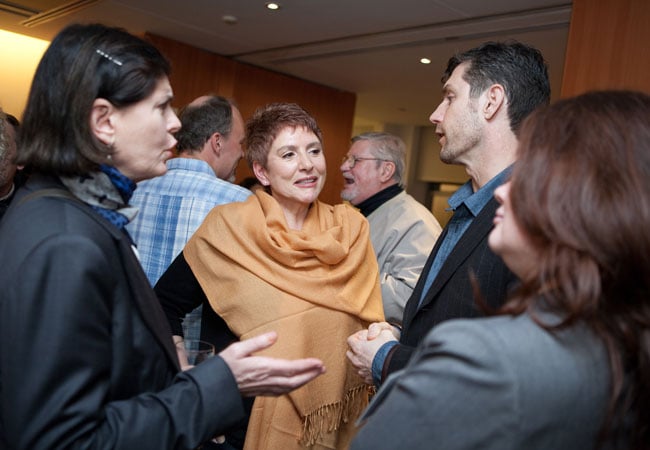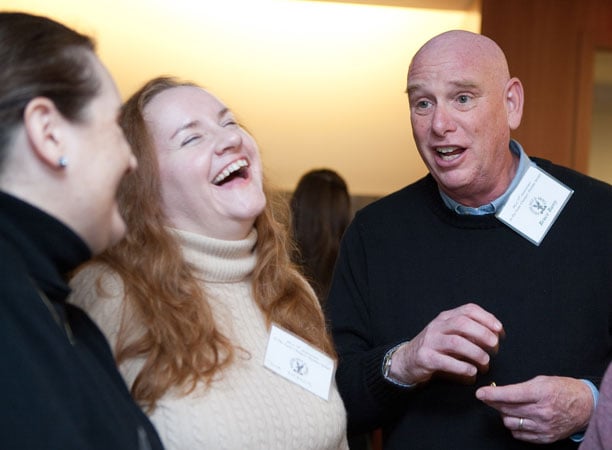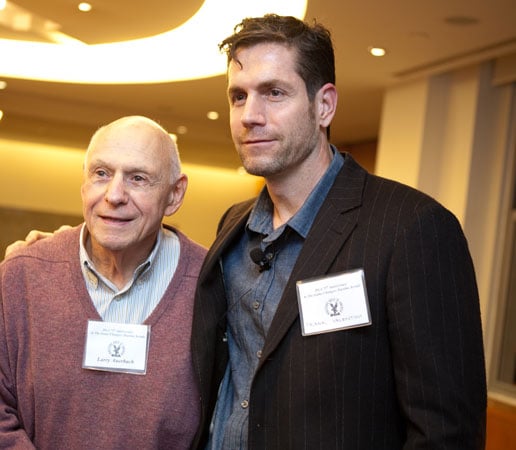Still photos by Marcie Revens
A celebration of the past and a look into the future of daytime serials was the impetus for the 75th Anniversary event As the Game Changes. Held on November 16, the evening featured a panel of respected names in the genre with Larry Auerbach (As the World Turns), Bruce Barry (Guiding Light), Larry Carpenter (One Life to Live), Francesca James (All My Children), Jo Anne Sedwick (Guiding Light), Frank Valentini (One Life to Live), and Maria Wagner Dormen (As the World Turns). Director Casey Childs (All My Children) served as moderator.
“Unlike any other genre represented by the DGA, daytime dramas run five days a week and most have lasted for decades,” said DGA Fourth Vice-President Gary Donatelli in his welcome to the audience in the Guild’s New York boardroom. “Directing them presents its own special set of challenges as Directors and their teams must make the impossible look easy and shoot many, many, many, episodes per week. But throughout the years, daytime dramas have not only changed with the times, but embraced them, making one thing certain: as the game changes, so do the soaps.”
Donatelli was followed by moderator Casey Childs, a four-time DGA Outstanding Directorial Achievement in Daytime Serials Award nominee for his work on All My Children. “Collectively, the people on this panel and many of the people in this room have been active participants in creating well over 100,000 hours of daytime drama,” said Childs. “We have found a way to reduce that down to six and a half minutes,” He then launched the evening with a video montage featuring some historic and iconic moments from the genre.
The conversation began with 1991 Robert B. Aldrich Award and 2004 DGA Honorary Life Member recipient Larry Auerbach speaking about the earliest days of daytime drama. “Hawkin’s Falls was a short-lived soap that was done in Chicago in late 1950,” recalled Auerbach. “I was the stage manager on that then I came to New York to work on Love of Life. I thought nobody would ever watch television in the daytime, so I took the job for six months figuring I’d get another job. Twenty-eight years later, I got another job.” Auerbach, who was an active Radio and Television Directors Guild member before joining the DGA after the merger in 1960, also detailed how the soap opera format made the migration from radio to television and derived the name from the fact that the shows were originally produced on radio to sell advertised products.
Childs asked each of the panelists to speak about how they entered the business.
Maria Wagner Dormen recalled getting her start on The Secret Storm. “I was an assistant to the Associate Producer and knew very little about daytime dramas. But the minute I walked in the door it was fabulous. There were all these exciting people who came in in the morning and an hour later they were made up and on the stage acting. It was as if I’d stepped into a fantasy world. So I started there and just kept going.”
Bruce Barry was working as a videotape librarian at CBS who spent his free time watching the work on the sets. He got his start in production as the cue-card man on the Captain Kangaroo Show, spoke about working his way up the ladder and finally joining the Guild as a Production Assistant. He remembers crossing over into the world of daytime drama on the Guiding Light when they needed an AD. “I said, ‘I’d love to work for Guiding Light, but I’m going to have the opportunity to direct on Captain Kangaroo.’ They said, ‘Well come to Guiding Light and we’ll give you the opportunity to direct.’ I didn’t know it was that simple! Thirty years later I was the senior director for that show.”
Frank Valentini, who has literally spent his life on One Life to Live recalled entering the business as the assistant to the executive producer before earning his DGA card as a PA. “Then I became an AD, and later moved into producing and directing at the same time. I left producing to concentrate on just directing for a couple of years, then came back as an executive producer and have been doing both.”
Francesca James began her career as an actor on several daytime dramas, eventually earning a Daytime Emmy award in 1980. “Then they didn’t use me for six months. I looked around and decided I no longer want to do this. I really want to direct. So I went to the powers that and said ‘I really want to do this.’ They said, ‘If that’s what you want to do then you’ll have to leave the show, because every actor on the show thinks they want to direct. So you’re going to have to leave and then come back and train, and we’re not going to pay you anything.’” So she left the show and trained as a director and ended up directing All My Children for eight years.
Three-time DGA Award-winner Larry Carpenter also got his start as an actor and regional theater director. He finally got his foot in the door when an actor friend paved the way for him to come in as an observer at As the World Turns. “I walked in the door and had absolutely no idea of what I was looking at. It was a completely different world and I was fascinated and I never looked back.”
Jo Anne Sedwick came from a soap opera family as her father, John Sedwick, directed iconic shows such as Edge of Night and Dark Shadows. “I knew the world, but I wasn’t going in there until I was looking for a job and answered a New York Times wanted ad for a job at Guiding Light. I started out in the office, then became a PA, then AD and eventually became a director. Guiding Light was my happy home for 27 years!”
The evening progressed with the panel discussing subjects such as the joys and difficulties of directing stories that can be slowly unfolded over a long arc, the reason why the business attracts people who can work quickly, and directing to fulfill the desires of the daytime drama audience. The discussion also veered into the territory of how the technological advances changed the genre and where the future lies with producing content for the internet.
Childs wrapped the conversation with an observation about the longevity of the genre. “You take a show like Guiding Light and add the years of radio you had a continuing story for close to 75 years! That’s unprecedented in the history of storytelling.”
